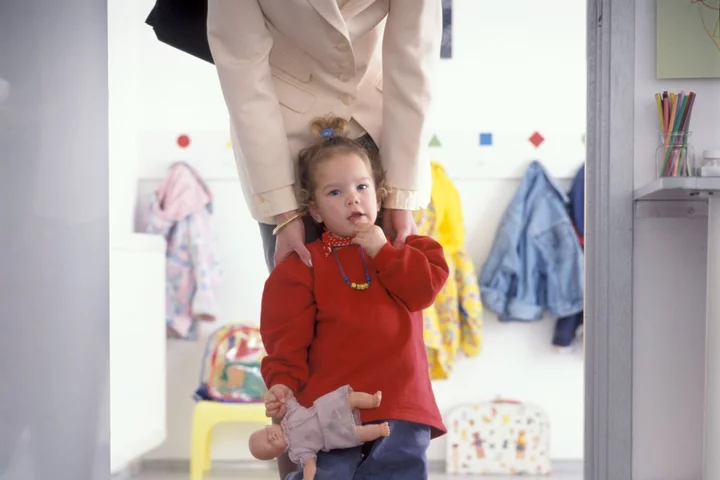
Nursery places and wraparound childcare plans announced
Parents can go online to find out what childcare they are eligible for under plans which will see nurseries expanded to provide more places and funding given to councils for wraparound care. Further details of the previously-announced reforms to allow some families of children as young as nine months to claim 30 hours of free childcare a week – set out by Chancellor Jeremy Hunt in the March Budget – have been announced. The Department for Education said parents in England can visit an eligibility checker online to see what they are entitled to, depending on their earnings and their child’s age. The Government said £100 million is being made available for nursery and early years places, with funding intended to support childcare settings to increase their physical space, which the department said is anticipated to add thousands of new places across the country. Following Mr Hunt’s target for all schools to be able to offer care either side of the school day by September 2026, local authorities will also now be getting details of how much of the £289 million wraparound fund they will receive – based on “anticipated need”. Early years leaders had previously expressed concerns that nurseries and childminders could struggle to deliver additional places for younger children from next year if the funding provided by the Government does not meet rising costs. The offer of free childcare for working parents will be available to those with two-year-olds from April 2024, covering around half a million parents, but it will initially be limited to 15 hours. From September 2024, the 15-hour offer will be extended to children from nine months, helping a total of nearly a million parents, and the full 30-hour offer to all under-fives will come in from September 2025. This is the largest investment in childcare in our history, so I encourage people with young children or those thinking about starting a family to visit the Childcare Choices website to find out what they’re eligible for Education Secretary Gillian Keegan Education Secretary Gillian Keegan said: “No-one should have to choose between having a career and having a family, so I’m determined that every parent who wants it should have access to the childcare they need. “Flexibility is at the heart of our plans to transform childcare for families, whether it’s offering quality childcare out of school hours or making sure there are more early years places where they’re needed most. “This is the largest investment in childcare in our history, so I encourage people with young children or those thinking about starting a family to visit the Childcare Choices website to find out what they’re eligible for.” Paul Whiteman, general secretary of school leaders’ union NAHT, said that far more investment is needed. “Unfortunately, the money behind this expansion is a fraction of what is required. Our members are also questioning where they will find the additional staff,” he said. “There is a real danger that the Government’s promises could fall short in reality if they don’t urgently look again at the funding and resources.” Helen Hayes, Labour’s shadow children and early years minister, added: “Without more details about whether this is new money, how many places it will provide and how new childcare will be staffed this pledge isn’t worth the paper it’s written on. “The Conservatives have overseen a dramatic fall in the number of childcare providers and places – they simply cannot be trusted to deliver the change in childcare that families need and deserve.” The department also said the childminder start-up grant scheme will open for applications by the end of November. The grant – £600 for those who register with Ofsted and £1,200 for those who register with a childminder agency – is aimed at boosting the numbers of childminders working to offer parents more flexible childcare. Work and Pensions Secretary Mel Stride said: “Boosting employment is key to growing our economy, and the extra money provided for parents on Universal Credit will give them the flexibility and security they need to find a job, support their children and reap the benefits of work. “I encourage every parent to access this resource to see what help is available and to talk to one of the thousands of Work Coaches in our Jobcentres who are there to help them find work or enhance their skills.” Parents can visit childcarechoices.gov.uk to use the eligibility checker. Read More Is scalp exfoliation the key to healthier hair? Why do some people love horror movies? TikTok influencers warn about ‘potent’ steroid cream risks among black women – dermatologist explains the risks House of the Year 2023 shortlist revealed by Royal Institute of British Architects Fatima Whitbread supporting new fostering campaign, as research finds ‘misconceptions put people off’ 5 key coat trends to complete your autumn/winter wardrobe
2023-10-27 15:54
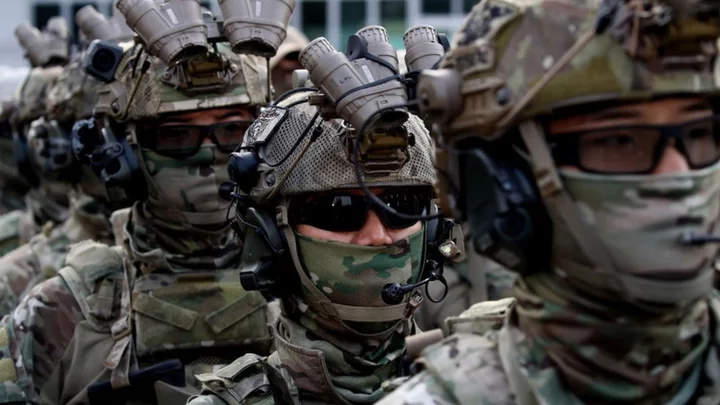
South Korea court upholds ban on gay sex in the military
The ruling is a setback in the fight for LGBT rights in the country, human rights groups say.
2023-10-27 15:26
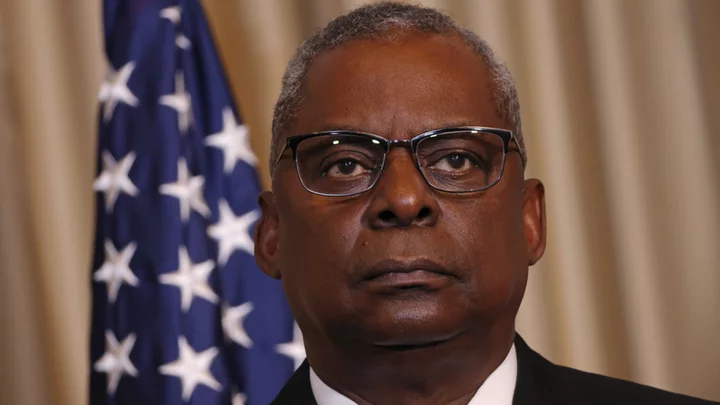
US strikes Syria bases used by Iran-linked groups
It follows a series of recent attacks on US bases in Iraq and Syria by Iranian-backed militia, officials say.
2023-10-27 15:20
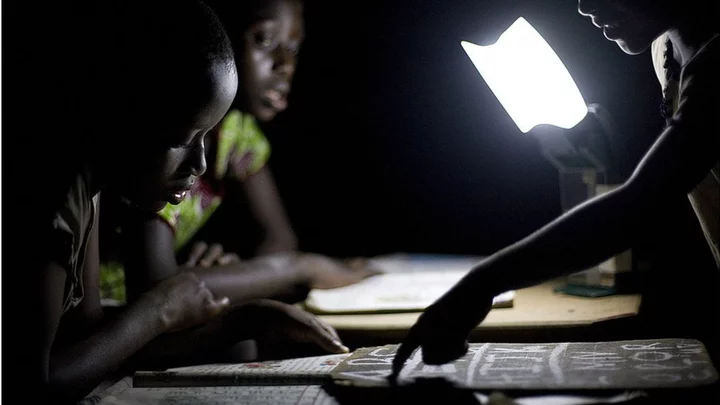
Ghana power crisis: Limited gas supply triggers nationwide power outage
The power operator says electricity supplies have been curtailed as a result of "limited gas supply".
2023-10-27 14:58
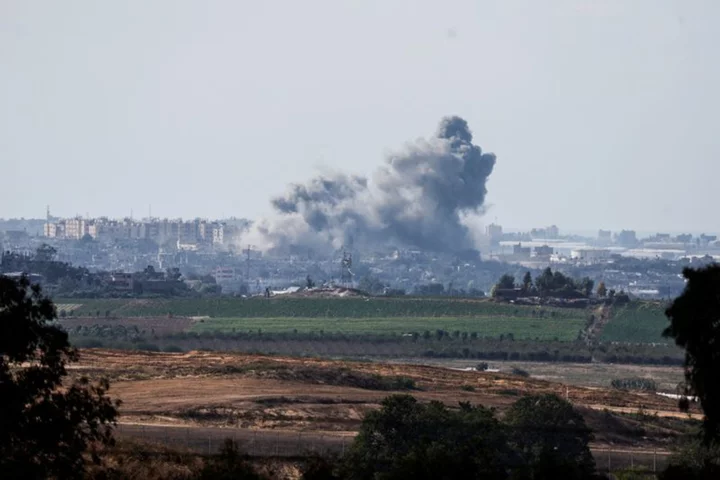
Israeli bombing of Gaza has killed 50 hostages, Hamas official tells Russian newspaper
MOSCOW Israeli bombing of Gaza has killed 50 of the hostages seized during raids by Palestinian militants on
2023-10-27 14:27
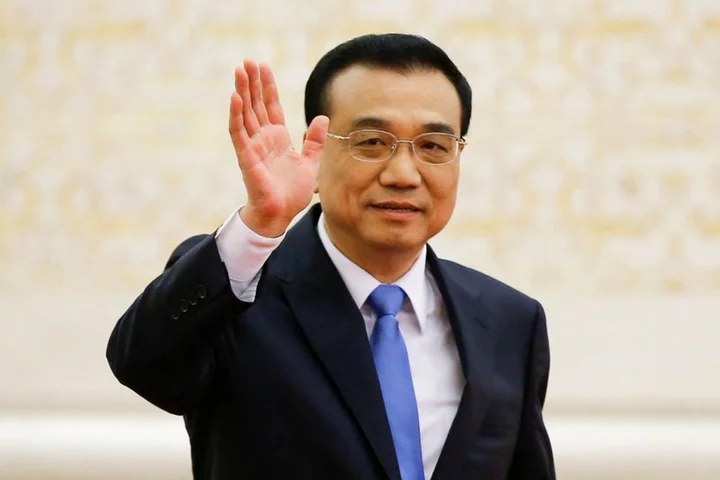
China ex-Premier Li Keqiang, sidelined by Xi Jinping, dies at 68
By Laurie Chen and Yew Lun Tian BEIJING Chinese former Premier Li Keqiang died of a heart attack
2023-10-27 14:25
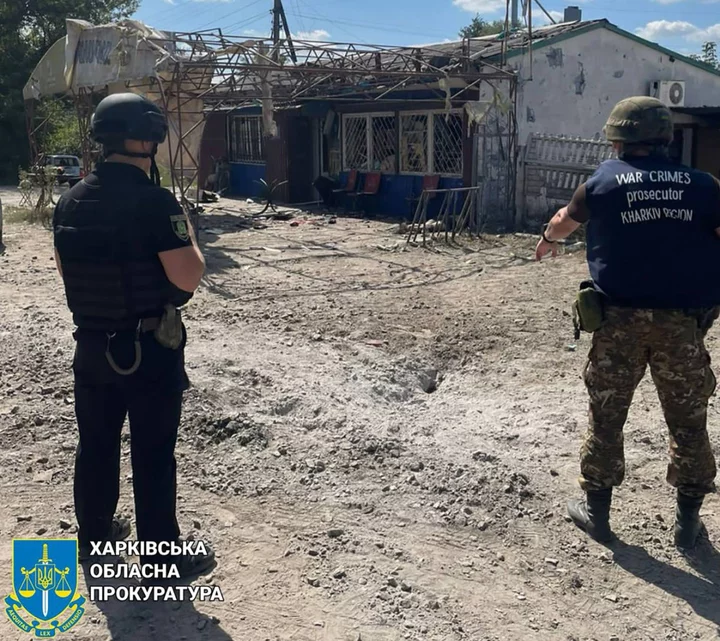
German prosecutors receive evidence regarding ‘Russian war crimes in Ukraine’
A non-governmental organisation founded by Amal and George Clooney handed over dossiers of evidence regarding Russia’s alleged war crimes in Ukraine to German federal prosecutors on Thursday. At least three cases were filed by the Clooney Foundation for Justice (CFJ) which called on the German prosecutors to investigate Russia’s actions since its full-scale invasion of Ukraine in February 2022. CFJ said in a statement: “The organisation submitted detailed dossiers against the perpetrators and is representing 16 survivors and families of victims.” One of the cases was filed jointly with CFJ’s partner, the Ukrainian NGO Truth Hounds. The foundation by barrister Amal Clooney and her actor husband George Clooney advocates for justice through accountability for human rights abuses around the world. The CFJ clarified that it submitted its plea in Germany due to the country’s application of “absolute universal jurisdiction”. German law allows the initiation of criminal investigations for international crimes committed outside of Germany, irrespective of the victims’ or perpetrators’ nationality or any other association with Germany. “International commitment around accountability for crimes committed in Ukraine has been unprecedented since the beginning of the Russian full-scale invasion of Ukraine,” said Anya Neistat, legal director of The Docket – a CJF initiative to collect evidence and build war crimes cases. “But it is now the time to see words turn into real action – and we are counting on German prosecutors to lead the way.” The CFJ said all three cases were filed “against high and mid-level commanders whom the Docket identified as likely suspects”. “The first case concerns an indiscriminate missile attack on a resort in the Odessa region, which in the summer of 2022 killed 22 civilians and seriously injured 40 more. The Docket is representing 11 families of victims and survivors,” the statement said. The second case is focused on the commanders of Russian ground forces who “unlawfully detained, tortured, and executed four men in the Kharkiv region during their occupation of the area from March to September 2022”. The third case identified the commanders of Russian units “involved in a pattern of crimes, including executions, torture, sexual violence, looting and other violations committed during the occupation in the Kyiv region in March 2022”. “While Ukrainian law enforcement agencies are doing their best to cover the unprecedented scale of war crimes committed in the country, they are overloaded and have limited options under Ukrainian law for pursuing the commanders and masterminds of the crimes,” Maryna Slobodianiuk, the head of Investigations Department of Truth Hounds, said. “We believe that by opening these proceedings, Germany can significantly contribute to the efforts of ensuring justice for all Ukrainian survivors”. “We represent survivors of torture, as well as families of people who had been executed or killed in indiscriminate attacks,” said Ms Neistat. “These Ukrainian civilians have suffered unthinkable violence, but now they are no longer victims – they chose to fight for justice, and we will be with them every step of the way.” Read More European rallies urge end to antisemitism as pro-Palestinian demonstrations continue worldwide CEO of a prominent tech conference resigns amid backlash for public statements over Israel-Hamas war How international law applies to war, and why Hamas and Israel are both alleged to have broken it UK could be legally complicit in Gaza war crimes, senior Tory MP warns Rishi Sunak Experts say Hamas and Israel are committing war crimes in their fight Putin makes first trip abroad since international arrest warrant issued
2023-10-27 14:21
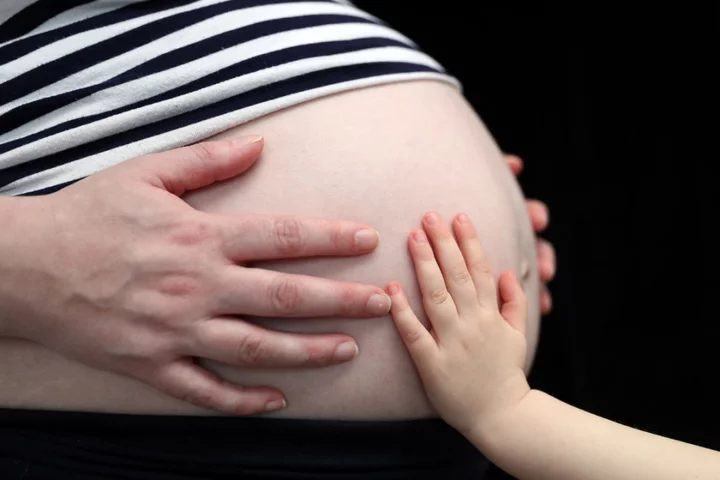
Your forties is the perfect decade to have your first child – I’m living my best life
Seven years ago, I was at my local antenatal class preparing for the birth of my firstborn. In my forties and armed with a coloured birthing ball, I looked around and gasped. All the other soon-to-be-mums were at least a decade younger than me. Some were nearly half my age. It briefly panicked me. Would I make any friends? Why did I leave it so late to have kids? Was I doing something wrong? In hindsight, though, I had no reason to worry: your forties is absolutely the best decade in which to have your first child. According to data published last week in The Daily Telegraph, the number of women becoming first-time mothers in their forties has increased in recent years: today, one in 25 UK births is to a woman aged 40-plus. That’s a lot of women just like me, despite the fact that getting pregnant over 35 gets you labelled as someone of “advanced maternal age”. That might sound harsh until you remember that older pregnancies used to be termed “geriatric” – thank God that’s been phased out. I’ve never regretted waiting until my forties, even if I had been trying for children for years by that point. My story is undeniably unique: my partner Alex took his own life while we were doing IVF, but that didn’t stop me from continuing to try to get pregnant. The maternal call was strong, so I decided to carry on with the process using Alex’s frozen sperm. Today I have two beautiful daughters with him: Lola, seven, and Liberty, five. It is an understatement to say I was ready for a baby at 40. I was grounded. Confident. Unlike when I was in my twenties or thirties, I knew exactly who I was and what made me tick. I had life experience. I no longer got FOMO. I didn’t even drink, having been through hell and back to become sober 20 years earlier. My career was fully off the ground, and therapy had helped me identify the family dysfunction I knew to ditch for the sake of my kids. I also wasn’t worried about my body bouncing back after the birth. I just desperately wanted to be a mum. Of course, there are all sorts of advantages to having children in your twenties and thirties. A huge bonus is that you’re simply more fertile. According to research, 31 is the magic age to have a baby – you’re still as fertile as in your twenties, but you also have more money. I’m sure motherhood in your fifties is great, too – although using your own eggs is highly unlikely, unless you froze them at some point before you turned 35. It means that some older mums often turn to donor eggs. Thinking back on my twenties and thirties, I don’t know how I would have managed motherhood. I don’t think I was ready to put my own needs on hold. I can’t imagine how hard it would have been to juggle work and my children, especially with the spiralling costs of childcare. I do accept that there are greater risks inherent in waiting to have kids. Both the quantity and quality of eggs dwindle. The rates of failed fertilisation, miscarriage and birth defects rise with age. There’s also the social pressure that comes with not having children early – you’re forced into endless conversations about the “ticking timebomb” of your fertility, and expected to fend off probing inquiries about your biological clock. The British Fertility Society advises women to start trying for a baby by the age of 32 at the latest, for a 90 per cent guarantee of having a child without resorting to IVF. But this advice simply wouldn’t have worked for me – I was determined to find the right person to have children with, and that didn’t happen until I was 35. When mine and Alex’s attempts to naturally conceive failed, and then Alex died, only at that point did I know I had the maturity to go it alone. I do have some regrets – I wish I’d frozen my eggs at the peak of my fertility in my mid-twenties, for instance (this process costs between £4,000 and £7,000 in the UK). But otherwise, having children in my forties was the right thing to do. Yes, I had my wobbles. I remember sobbing on the bathroom floor after yet another failed pregnancy test. I would berate myself for leaving it so late. I had to force myself to remember that many women experience fertility struggles in their twenties and thirties, too. All of those anxious feelings, though, flew out the window once I had my first child. When I left the hospital to begin parenthood alone, a new bag of nappies in hand, I didn’t have a meltdown. I was just so grateful that I’d had a baby, especially when the odds seemed so stacked against me. Sleepless nights trying to coax my child back to sleep were what I had most desired. It was all so good, in fact, that I went on to have a second child in my forties. I had a spare embryo in a freezer in St Petersburg. Now I call her Liberty. Every day since becoming a mum, I have embraced the mess and chaos, and appreciate every minute. I’m sure my younger self would cringe at the thought of me spending my evenings helping my children with their homework. But I’m proud to say that I’m living my best life. Read More Vanessa Hudgens addresses pregnancy speculation amid Cole Tucker engagement Rachel Bilson reveals she’s suffered multiple miscarriages Pregnant woman has maternity photo shoot in hospital before giving birth Hailey Bieber responds to ‘disheartening’ pregnancy rumours Like Rebecca Adlington, I also lost my baby at 20 weeks Britney Spears reveals she had an abortion while dating Justin Timberlake
2023-10-27 13:57
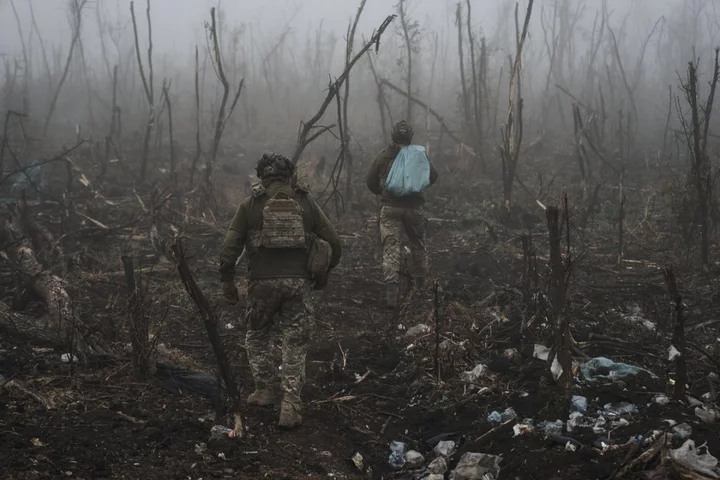
Ukraine-Russia war - live: Putin’s troops forced to regroup as they suffer heavy losses in east, says Kyiv
Vladimir Putin’s troops have been forced to regroup while suffering over 400 casualties a day in a drive to capture the eastern Ukrainian city of Avdiivka, Donetsk, Kyiv claimed. “The enemy is trying to move forward and then we beat them back,” Oleksandr Shtupun, a spokesperson for Ukraine‘s southern groups of forces, said. “So by no means can you speak of a fixed situation of some sort. Heavy fighting is continuing, though activity has subsided somewhat. The enemy is going through some kind of regrouping.” Mr Shtupun said Russian forces had suffered over 400 casualties a day in its campaign which has relied on small assault groups of 30 to 40 men. Meanwhile, North Korea has shipped over 1,000 containers of military equipment to Russia, according to the UK Ministry of Defence. It said Pyongyang was set to become one of Russia’s most significant foreign arms suppliers alongside Iran and Belarus. On Wednesday, Vladimir Putin tested Russia’s ability to launch a massive retaliatory nuclear strike as he pulled the country out of an international test ban treaty. Read More Moscow succession: What would happen if Putin dies? Russia is executing its own retreating soldiers as Ukraine offensive fails, says US A Russia without Putin? Be careful what you wish for... Putin’s many ‘heart attacks’ and why the rumours may be in his favour
2023-10-27 13:50
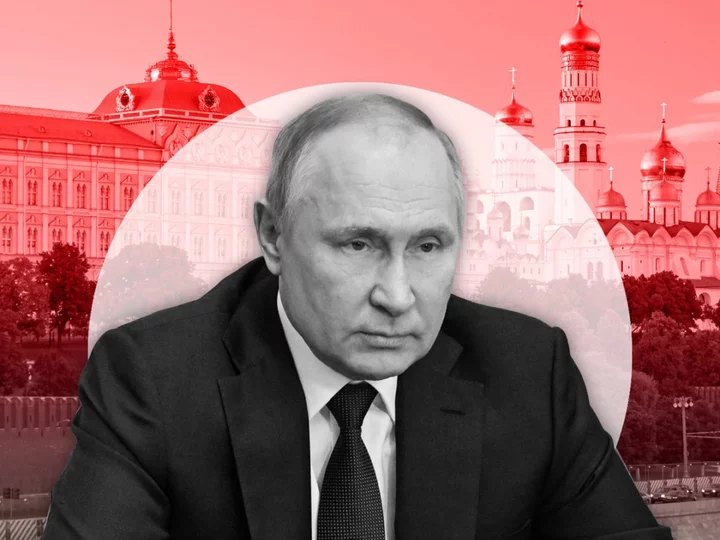
Moscow succession: What would happen if Putin dies?
Thyroid cancer, Parkinson’s disease, leprosy or declining in the aftermath of a stroke - just a few of the many unproven ailments rumoured to have afflicted the Russian leader in recent years. Just this week, the Kremlin were forced to deny rumours that Vladimir Putin had suffered a cardiac arrest in his bedroom, months after they were forced to deny that he had soiled himself. Since gripping the reins of power in 1999, Putin has established himself as one of the most infamous politicians in modern history, with a vicelike grip over Russia. His current term is set to expire next year, yet under sweeping changes to the constitution that were introduced in 2020, he could rule Russia until 2036. Yet since his invasion of Ukraine and the loss of tens of thousands of his troops, the fallout of his military gamble has caused cracks to appear for the first time under his 20-year leadership. Speculation has also dogged the ageing tyrant that his health is failing, with the future of Russia uncertain upon his demise. In June, he faced the greatest threat to his hold on power, after his former ally Yevgeny Prigozhin mounted an armed rebellion and called on his forces to march on Moscow to oust Russia’s military command. Once known as ‘Putin’s chef’, Prigozhin held great influence following the invasion of Ukraine as the owner of the Wagner private military contractor. His growing criticism of the military leadership made him a credible threat to Putin’s regime, with the dictator vowing harsh consequences for his “betrayal” and “treason”. Just two months after his aborted mutiny, Prigozhin died in mysterious circumstances while aboard a plane flying between Moscow and St Petersburg. While this dramatic opposition to the Russian leadership was swiftly quashed, it posed questions about the future of the country’s leadership, and who stands in line to replace their authoritarian leader. His family Unlike other dictators throughout history, Putin’s family are not in the running to replace him, with very few details known about their relationship with the president. Famously secretive about his personal life, his 30-year marriage to flight attendant Lyudmila Shkrebneva ended in divorce in 2013 amid speculation about his extramarital affair with retired gymnast Alina Kabaeva. While it is unknown how many children he has welcomed since the breakdown of his marriage, he had two daughters with Ms Shkrebneva, Maria Vorontsova, 36, and Katerina Tikhonova, 35. Neither have any involvement in politics, while he refuses to name his grandchildren in public, telling a reporter: “The thing is, I don’t want them to grow up like royal princes, I want them to grow up to be normal people.” During one of his rare personal interviews in 2015, he said of his daughters: “My daughters live in Russia and studied only in Russia, I am proud of them,” he said. “They speak three foreign languages fluently. I never discuss my family with anyone.” Mikhail Mishustin If Putin were to die or abruptly step down, the Russian Federation Council has 14 days to call early presidential elections. If it fails to act, the Central Election Commission would call it, while prime minister Mikhail Mishustin would serve as acting president in the interim. He is considered by some however to unlikely option to become a permanent placement, given his lack of popularity with Putin’s inner circle of ‘yes men’. According to the BBC, Mishustin had the “unenviable task of rescuing the economy but has little say over" the Russia-Ukraine war, with sources close to the Kremlin saying he was unaware of Putin’s intentions for a full-scale invasion. Speaking to The Independent, Dr Mark Galeotti said: “Constitutionally, he takes over when the president is dead or incapcitated, he would be incumbent. He’s a classic technocrat choice. I could see that happening, but there are other candidates who would fill the same niche.” Dmitry Medyedev Known as one of Putin’s closest allies, Dmitry Medvedev has been tipped as one of his potential successors. He had previously held the role of president from 2008 to 2012, before stepping aside in what was later revealed to be a prearranged deal. Once considered by the West as a moderate voice within the Kremlin, he has developed a reputation as Putin’s bad cop, referring to Ukrainians as “cockroaches” and making increasingly bellicose nuke-related threats.” The former law professor held the role of Prime Minister from 2012 to 2020, before becoming the deputy chairman of the Security Council of Russia. Over the years however, it is believed that his subservient role under Putin has weakened his own ability to consolidate power amongst Russia’s elite. Sergei Kiriyenko Other names mentioned to take the leadership helm include Sergei Kiriyenko, who has served as First Deputy Chief of Staff since 2016, and is known to be a member of Putin’s closest inner circle. With his involvement over the newly annexed Ukrainian territories, he is understood to have daily access to the president, and maintains good relations with all major key players among Russia’s political elite. Dismissing his chances of ever coming to the forefront of Russian politics however, Dr Galeotti said that he served better as a “backroom” operator. Sergei Shoigu Given the humiliating trajectory of the Ukraine war, Sergei Shoigu is no longer a likely choice to be announced as Putin’s predecessor, despite his position as one of Russia’s most influential men. The defence minister had once been voted the most popular politician after Putin, and is known to be close with the reserved leader, often spending summer vacations together. “Before the invasion, I would have absolutely said Shoigu, but his reputation has now been tarnished with the invasion,” said Dr Galeotti. “He’s still got relatively high levels of public support and trust, and he is a phenomenal behind the scenes operator. The days where he could have been president may be over but as a kingmaker, he could still be really influential.” Nikolai Patrushev The secretary of Russia’s Security Council, Patrushev has known Putin since they worked together in the KGB, and was a major strategist in both the 2014 and 2022 invasions of Ukraine. The 71-year-old is reportedly “one of the few figures Putin listens to”, while his son Dmitry has also been rumoured as a potential successor to Putin given his position as agriculture minister. Other suggestions have included Moscow mayor Sergei Sobyanin, former bodyguard Alexei Dyumin and chief of staff Dmitry Kozak. “It’s going to have to be someone who could create a coalition, who is able to be acceptable to both the technocrats and the security elite,” Dr Galeotti said. “It will quite likely not one be one of the big beasts, precisely because of the need to build a coalition.” “I think actually the Russian system will cope with the crisis quite quickly and swiftly and we’ll see the next political elite looking to end the war in Ukraine and the confrontation with the West. Putin will quite likely become the scapegoat for all that wrong.”
2023-10-27 13:29
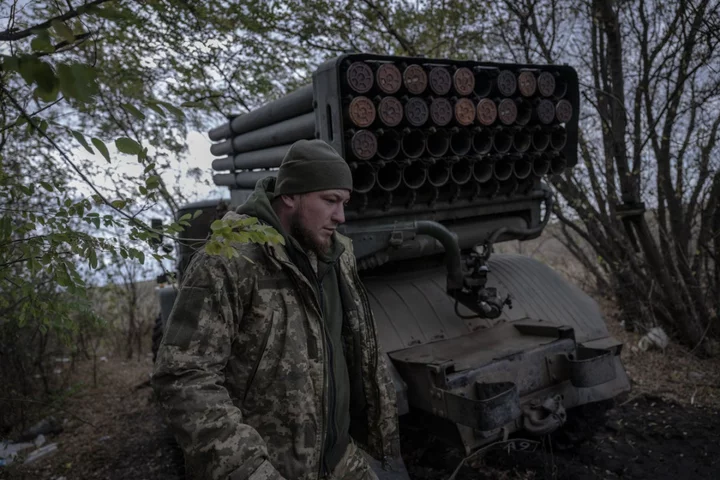
Russia is executing its own retreating soldiers as Ukraine offensive fails, says US
The White House said it had information that Russia was executing its own soldiers who retreated from an offensive in Ukraine or refused to follow orders. “We have information that the Russian military has been actually executing soldiers who refuse to follow orders,” White House spokesperson John Kirby told a media briefing on Thursday. “We also have information that Russian commanders are threatening to execute entire units if they seek to retreat from Ukrainian artillery fire,” he added. The US also claimed that some of the Russian casualties near Avdivvka were “on the orders of their own leaders”. Ukrainian forces have been fighting a Russian military onslaught in the frontline town of Avdiivka – a few kilometres north of occupied Donetsk – for several weeks since mid-October. Ukrainian president Volodymyr Zelensky described the situation as “particularly tough” earlier this week. Russia’s ambassador to Washington, Anatoly Antonov, made no reference to the White House statement but said that the latest military aid package of $150m to Ukraine by the US was “provocative and inflammatory actions in the international arena that look more like pouring oil on the fire”. He wrote on Telegram: “It is long past time to halt the mindless multi-billion dollar flow to the bankrupt Kyiv regime. Time to stop showing total disdain towards the opinions of your own citizens and indifference to the growing number of victims dying from American weaponry.” Mr Kirby confirmed that since 11 October Russia lost “at least 125 units of armoured vehicles around Avdiivka and more than a battalion’s worth of military equipment”. White House also said that the Russian troops in Avdivvka are struggling with “low morale”. Mr Kirby warned that Russia will likely continue to attack around Avdiivka and “may be able to achieve some tactical gains” in the coming months. However, he added that this will come at the cost of “thousands of casualties” as the Russian soldiers are thrown into battle without proper training and with “poor morale”. Mr Kirby said threats to execute the soldiers were barbaric, according to Reuters. “I think it’s a symptom of ... how poorly Russia’s military leaders know they’re doing and how bad they have handled this from a military perspective.” Additional reporting with agencies Read More The Body in the Woods | An Independent TV Original Documentary The harrowing discovery at centre of The Independent’s new documentary As the Turkish Republic turns 100, here's a look at its achievements and challenges ahead White House says Russia is executing its own soldiers for not following orders Russia recruits prisoners for Ukraine war as Putin replicates Wagner
2023-10-27 12:53
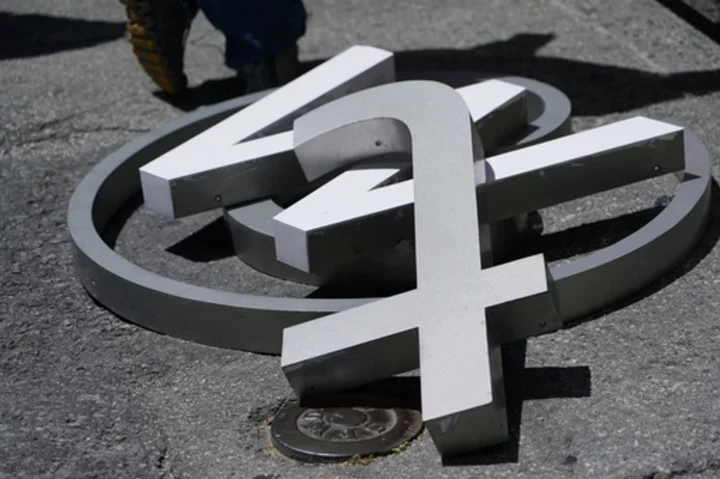
Twitter takeover: 1 year later, X struggles with misinformation, advertising and usage decline
One year ago, billionaire Elon Musk walked into Twitter’s San Francisco headquarters with a white bathroom sink and a grin, fired its CEO and other top executives and began transforming the social media platform into what is now known as X
2023-10-27 12:18
